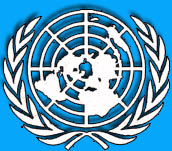Economist urges closer UN ties with major banking groups
 New York - The UN General Assembly should establish better ties with the World Bank and International Monetary Fund in order to resolve some of the problems deriving from the global financial crisis, the top UN economist said Thursday.
New York - The UN General Assembly should establish better ties with the World Bank and International Monetary Fund in order to resolve some of the problems deriving from the global financial crisis, the top UN economist said Thursday.
Nobel Prize winning economist Joseph Stiglitz called for reform in the relationship among the three institutions so that the assembly can assume a leading role in monitoring financial organizations and their decisions that will have impacts on economic growth, unemployment and poverty.
"To fulfil these new responsibilities, there have to be reforms in the relationship between the UN and the Bretton Woods, as well as the regulatory institutions, to enhance the latter's accountability to the international community," Stiglitz told a UN debate on the global financial crisis.
Stiglitz leads a UN task force to deal with the crisis, and the debate at UN headquarters was aimed at strengthening UN role in finding resolution to the global economic problems.
He said the world had failed to learn lessons from the financial crisis in Asia 10 years ago. The current crisis began in the United States, spread to Europe and the world.
"The only institution that today has the broad legitimacy (to solve the economic crisis) is the United Nations," Stiglitz said.
The World Bank and IMF were created at Bretton Woods, New Hampshire, in 1944 to help countries recover from World War II. Many UN members considered those two institutions not up to their tasks with problems in today's poor and developing countries.
The IMF on Wednesday approved a new programme to provide emergency loans to countries facing serious cash shortages in the wake of an ongoing financial crisis.
Stiglitz said the World Bank and IMF have been wedded to particular economic perspectives in past decades under the assumption that markets were self-regulatory.
"Contrary to the policies that they and other institutional economic organizations have often pushed on developing countries, capital and financial market liberalization has often not brought the promised benefits of enhanced growth, but has increased instability," he said.
Stiglitz and UN leaders have called for close cooperation among the world's major markets to assist in the resolution of the crisis. The UN is pushing for a leading role because it is fighting poverty and hunger as well as diseases and underdevelopment around the world.
The one-day debate on the world economic crisis at UN headquarters in New York was under the leadership of UN General Assembly president Miguel d'Escoto Brockmann.
"What was once benignly described as 'irrational exuberance' is now exposed for what it was: unbridled greed and pervasive corruption enabled by governments that lost sight of their responsibility to protect their citizens," he said in opening the debate.
"The world faces setbacks that are already causing untold suffering," he said. "For some, the consequences are fatal."
Former chairman of the US Federal Reserve Alan Greenspan, who once referred to the stock market bubble of the 1990s as "irrational exuberance," said last week he had made policy mistakes that led to the current credit crunch.
He said a little tinkering of economic reform would not restore prosperity or confidence in markets around the world.
The task force set up by d'Escoto Brockmann, a former Nicaraguan Sandinista foreign minister in the 1980s, was to set the tone for UN discussion on the financial crisis, a move welcomed by poor and developing countries that form the majority in the assembly.
D'Escoto Brockmann said the global economy is not the "private dominion" of groups that are trend setters in the economy - the G-8, G-15 and G-20 - which are comprised of the world's major economic powers.
He said a long-term solution to the crisis must now include the G- 192, meaning the 192 UN members.
The leaders of the G-20 nations will gather in Washington on November 15 and are expected to agree on a series of principles for countries to follow in combatting the crisis and regulating the financial industry. (dpa)